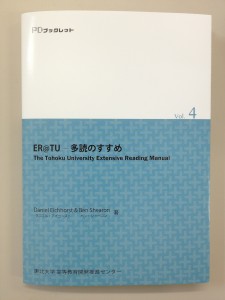ALTs business ES expectations high school junior high school public policy teaching
by sendaiben
5 comments
If I ruled the world… the JET Programme
So the story I wrote about yesterday seems to have caught the eye and the imagination of people I know. I have yet to see a positive response, even among former JETs.
There are various reasons for that, but the most important one seems to be the opportunity cost of this plan -there are probably much more effective things that could be done with the money. I’d like to put all that aside and just focus on what could be done to make the JET Programme and wider ALT utilization more effective.
1. Make JET an up or out program
Almost all ALTs are excited, happy, enthusiastic, and motivated when they first arrive in Japan. That energy and enthusiasm, combined with not knowing anything about Japan, is hugely beneficial for students. However, after a year, depending on how their year has gone, how they have been treated by teachers and schools, and how their particular ALT community is, they will change. Some will pick up bad habits and stagnate in the computer room, some will settle into a comfortable existence, and some will learn as much as they can about teaching and work hard to improve themselves.
At that point I believe most ALTs should move on. JET is, as many have mentioned, an exchange program, a way for Japan to increase its soft power, and a way to internationalize smaller and out of the way communities. I think it works very well in these respects, but most of the benefits are in the first year.
A small number of ALTs should be chosen for promotion, given extensive training and more responsibilities, and put on a career track to become special teachers (with possible tenure, a normal pay scale and benefits, and the ability to teach by themselves). These special teachers would then assist with managing regular ALTs as well as be assigned to schools as English teachers.
This way the current goals of JET programme would be met while allowing it to serve as a source of high-quality native speaker instructors.
2. More oversight
Make schools and boards of education submit plans for how they intend to train and utilize ALTs, and follow up to ensure that they do. Schools that fail to find a useful and productive role for their ALTs should not receive one. The huge variation in how ALTs are treated is probably one of the worst problems with the system, and a lot of it is due to the ‘hands-off’ nature of the ‘recruited centrally, employed locally’ approach currently in use.
3. More training and guidance for schools and teachers
In many cases, teachers and schools aren’t quite sure what to do with ALTs. I would like to see the Ministry of Education provide more training and examples of best practice to schools and teachers. Often, the youngest teachers are assigned to be ALT supervisors, whereas in many cases the head of English would be more suitable.
Many ALTs are stuck in ‘tape-recorder’ team-teaching situations where they basically sit in on another teacher’s class and participate sporadically. This is not particularly useful or fulfilling. Instead, ALTs could take small groups aside for speaking practice (like the Spanish, French, and German language assistants in my own secondary school did), mark and check written work, help with creating written, audio, or online materials, or provide after-school teaching for students.
Having trusted and experienced native teachers as described in 1. above would also help here.
Conclusion
I don’t think the JET programme is all bad. Yes, I would rather see some of the money go towards training Japanese teachers or creating more effective teaching materials (particularly online). However, I think the JET programme provides some very positive results for Japan, and I would be sad to see it eliminated completely.
Finally, one potential positive for this plan is that it may go some way to reversing or even ending the trend towards outsourcing ALTs or teachers, which I think has no redeeming features. It is very possible that the new JET ALTs will not be adding to the total pool of ALTs, but rather replacing assistants provided by dispatch companies. That would be a fine result in my opinion. The sooner the parasitic ALT dispatch companies are driven out the better.
I look forward to your comments!
ALTs ES expectations high school junior high school kids public policy teaching
by sendaiben
15 comments
36,000 JET ALTs a year?
I saw this mentioned in the news last week, and a post on Mutantfrog Travelogue reminded me of the story just now.
I have a lot of history with the JET Programme. I first came to Sendai on JET, had three great years in junior high schools and an elementary school, then was involved in running the Miyagi program as the Chief ALT Advisor for four years. I think I saw the best and the worst of JET.
The best thing about JET is that it has the potential to take intelligent, educated, energetic, and motivated people and put them in a position where they can interact with, inspire, mentor, and befriend Japanese children and teachers. When this works it works incredibly well, and I have had the pleasure of working with some exemplary JETs in my time.
The worst thing about JET is when teachers and schools are not supportive, don’t provide clear working guidelines or support their ALTs, and host institutions are unwilling to actively manage JETs and provide feedback and discipline where necessary.
Assistant Language Teachers on the JET Programme are assistants. They are able to help, support, and contribute to classes when their colleagues and schools work to make that possible. Like many things in English education in Japan, training and implementation are going to make most of the difference, not spending more money or deciding to put an ALT in every school (whether they want one or not). There seems to be an expectation that ALTs should be radically improving English education in Japan, but to me that is like saying that the new textbooks should magically do that. It’s not going to happen unless the teachers and schools facilitate and allow it to.
In the spirit of my ‘if I ruled the world’ blog posts from last month (on elementary school, junior high school, high school, and university English education in Japan) I am going to come up with some suggestions for the JET Programme on the blog tomorrow.
In the meantime, what do you think about the proposal to double JET numbers? Any good or bad experiences with JET? Please leave a comment below.
curriculum extensive reading graded readers language courses materials online resources school management teaching Uncategorized university websites
by sendaiben
leave a comment
ER@TU website
The ER@TU (Extensive Reading at Tohoku University) Project now has a website!
Features of possible interest to teachers include the Guide to ER (bilingual page aimed at students explaining extensive reading and this particular program) and the Word Counts page, which lists graded reader titles and word counts only (aimed at teachers and students).
The website has both PC and mobile versions, and is not quite finished yet (to put it mildly!).
The site is a WordPress installation on Bluehost, as explained very thoroughly by Michael Hyatt in this excellent blog post. I paid for three years in advance, bringing the monthly cost to around 400 yen. This works very well, as my contract is also up in three years time, so hopefully this will give me some leverage with the university 😉
Please leave a comment below if you have any questions or suggestions about the site.
curriculum expectations extensive reading language courses materials Reading school management teaching university
by sendaiben
26 comments
The Tohoku University Extensive Reading Manual
I am so thrilled to finally have this on my desk.
This is a 136-page bilingual handbook describing the extensive reading program at Tohoku University. It includes a detailed description of the curriculum, examples of handouts and other materials, and guides to adapting the program to other contexts.
For a limited time, free copies are available. Please leave a comment with your name and work address if you would be interested in receiving one. Alternatively, see me (Ben Shearon) at the JALT Pan-SIG Conference in Nagoya (May), the 2nd Extensive Reading World Congress in Seoul (September), or the JALT National Conference 2013 in Kobe (October) to get a copy.




